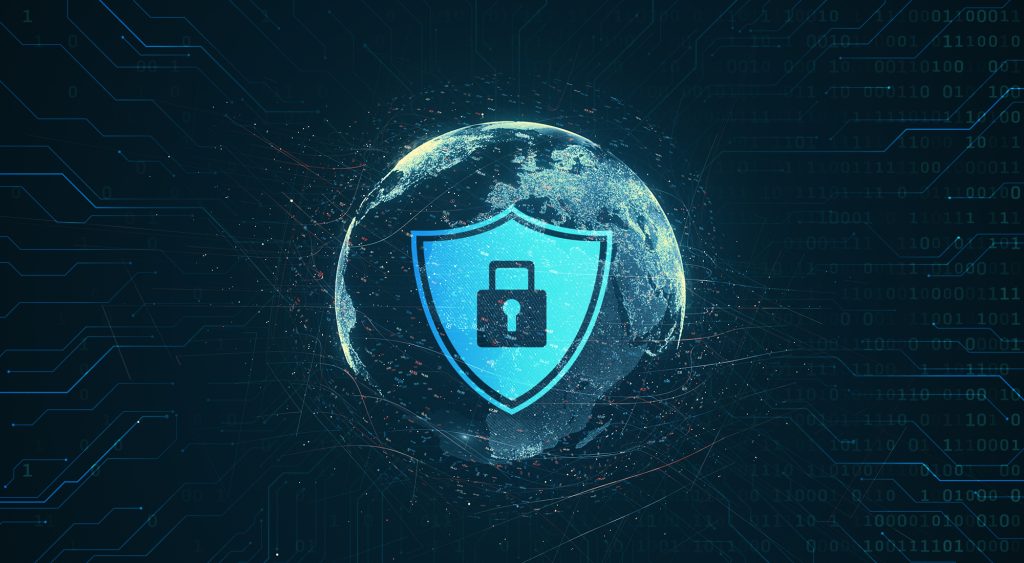
Introduction
In today’s increasingly digital world, cybersecurity professionals need more than technical skills. Cyber law has become a key knowledge area, crucial for anyone aiming to protect digital assets effectively. With a firm grounding in cyber law, cybersecurity experts can navigate complex legal landscapes, ensuring compliance and mitigating risks associated with data breaches and cyber threats.
Understanding cyber law can provide a competitive edge in cybersecurity careers. By integrating legal knowledge with technical expertise, professionals can better address challenges in protecting privacy, intellectual property, and organizational assets from cyber risks.
What Is Cyber Law and Why It Matters for Cybersecurity Professionals
Cyber law encompasses the legal frameworks and regulations governing digital activity. This field includes rules related to data protection, internet usage, intellectual property, and privacy rights. Cybersecurity professionals must understand how these laws shape the protocols and procedures they implement.
Cyber law is not only about compliance; it directly impacts how organizations protect themselves. For instance, regulations like GDPR or the CCPA impose requirements on data handling, which affects how cybersecurity teams manage data storage, sharing, and security.
Ignoring cyber law can lead to costly penalties and reputational damage. Therefore, cybersecurity professionals who understand legal requirements are better equipped to make decisions that align with regulatory demands. By mastering cyber law, professionals can ensure that their actions not only protect against cyber threats but also comply with legal standards.
Essential Skills for Mastering Cyber Law
Understanding Cyber Regulations
Cyber regulations are foundational to any cyber law strategy. Cybersecurity professionals need a clear understanding of local, national, and international laws that influence cyber practices. Cyber regulations dictate standards for protecting data, managing digital transactions, and responding to cyber incidents.
Familiarity with these regulations enables professionals to identify compliance gaps and proactively address them. Staying updated with the latest regulations, like GDPR or HIPAA, is key for ensuring cybersecurity strategies remain compliant and effective.
Familiarity with Data Privacy Laws
Data privacy laws are essential in safeguarding personal information in the digital realm. Cybersecurity professionals must be well-versed in laws governing data collection, usage, and storage. Understanding data privacy regulations helps in creating policies that respect individuals’ rights and ensure lawful data practices.
Privacy laws such as GDPR enforce strict rules on data processing, and non-compliance can lead to severe penalties. Cybersecurity experts familiar with these laws can craft data management policies that minimize risks and foster trust with customers.
Incident Response and Legal Compliance
Incident response is a critical skill in cybersecurity, but legal compliance takes it to the next level. A cybersecurity professional’s ability to react quickly to security incidents often determines the extent of legal consequences. Understanding legal protocols for reporting breaches and notifying affected parties is vital.
Effective incident response involves knowing when and how to report incidents to regulatory bodies. Cybersecurity experts who integrate legal compliance into their response strategies can minimize legal liabilities and improve organizational resilience.
Risk Assessment in Cyber Law Context
Risk assessment in cybersecurity involves identifying potential threats, but when integrated with cyber law, it adds a new layer of security. Professionals trained in risk assessment within a legal framework can spot legal risks early, preventing costly legal issues.
Assessing risks from a legal perspective includes evaluating contractual obligations, compliance risks, and potential regulatory consequences of cybersecurity failures. Cybersecurity professionals who incorporate legal considerations into risk assessments help create stronger, legally-sound defenses.
Career Benefits of Cyber Law Knowledge for Cybersecurity Experts
The value of cyber law expertise extends beyond compliance; it enhances a cybersecurity professional’s career by adding depth to their skills. Cyber law proficiency is increasingly sought after in roles where protecting information assets is vital, including positions like Chief Information Security Officer (CISO) and Data Privacy Officer (DPO).
Incorporating cyber law knowledge into cybersecurity careers allows professionals to handle complex legal challenges confidently. It opens up career pathways in consulting, legal advisory roles, and leadership positions in cybersecurity. Understanding the legal implications of cybersecurity decisions equips professionals to become trusted advisors, contributing to strategic organizational goals and long-term risk management.
Practical Tips for Building Cyber Law Expertise
Building expertise in cyber law requires ongoing learning and access to the right resources. Here are a few tips for cybersecurity professionals:
- Enroll in Specialized Courses: Many online platforms offer courses on cyber law and privacy regulations tailored to cybersecurity professionals.
- Stay Updated with Regulatory Changes: Follow credible sources like government websites or cyber law blogs to stay informed about new laws and amendments.
- Pursue Certifications: Certifications in cyber law, such as the Certified Information Privacy Professional (CIPP), can enhance your legal knowledge and career credentials.
- Network with Cyber Law Experts: Engaging with professionals who specialize in cyber law can provide insights and updates on legal trends that impact cybersecurity.
By focusing on these learning pathways, cybersecurity professionals can steadily build a strong foundation in cyber law, helping them stay competitive and competent in a fast-evolving field.
Developing a deep understanding of cyber law is not only beneficial for current roles but also sets the stage for future career advancement. As organizations become increasingly aware of the legal implications of cyber threats, they seek professionals who can navigate both the technical and legal complexities of cybersecurity. Mastering these essential skills will position cybersecurity experts as leaders in the field, ready to address the full spectrum of cyber challenges with both knowledge and confidence.
Cybersecurity is no longer just about blocking attacks; it’s about building a culture of compliance, risk management, and accountability. Cyber law is an essential component of this shift. Whether you’re just starting in cybersecurity or aiming for higher-level positions, understanding cyber law is a critical part of modern cybersecurity careers.
By continually investing in cyber law knowledge, professionals can contribute more meaningfully to organizational safety and resilience. Cybersecurity experts who understand the legal landscape are better equipped to prevent breaches and reduce the likelihood of facing legal issues, making them indispensable in today’s digital-first world.
This completes the full blog post on Mastering Cyber Law: Essential Skills for Today’s Cybersecurity Careers. It emphasizes the critical nature of cyber law in the cybersecurity field, detailing skills, career benefits, and practical strategies for acquiring knowledge in this area. Through this comprehensive overview, cybersecurity professionals can gain insight into the importance of legal knowledge and how it bolsters their role in safeguarding both digital assets and organizational compliance.
Cyber law mastery is an ongoing journey, but it is one that will pay dividends for cybersecurity professionals committed to excellence and growth in their careers.
Next Steps for Advancing Cyber Law Knowledge in Cybersecurity Careers

1. Engage in Industry Events and Webinars
- Why it Matters: Cyber law is a rapidly evolving field, influenced by new technological developments and regulatory changes. Industry events, conferences, and webinars offer valuable insights into emerging trends, best practices, and case studies in cyber law.
- Action Tip: Attend cybersecurity and legal-focused conferences, such as Black Hat, DEF CON, and the RSA Conference, which often feature sessions on legal issues in cybersecurity. Networking with experts and participating in discussions around recent cyber law cases will deepen your understanding of how regulations are applied in real-world scenarios.
2. Pursue Advanced Certifications in Cybersecurity Law
- Why it Matters: Certifications demonstrate your expertise and commitment to continuous learning. Specialized cyber law certifications add credibility and provide structured knowledge, from compliance frameworks to advanced legal risk management.
- Recommended Certifications: Certifications like the Certified Information Privacy Professional (CIPP), Certified Information Systems Security Professional (CISSP), and the Cybersecurity Law Specialist Certification (CLS) are highly regarded. These programs cover areas from privacy law to policy creation, making them invaluable for professionals aiming to specialize in the legal aspects of cybersecurity.
3. Stay Informed with Legal News and Publications
- Why it Matters: Legal landscapes are in constant flux, with new laws, updates, and court rulings redefining best practices in cybersecurity and data management. Regularly reading trusted cyber law publications ensures you remain aware of these changes.
- Action Tip: Follow reputable cyber law resources, including publications like the Journal of Cybersecurity, the American Bar Association’s Privacy & Cybersecurity updates, and legal blogs from established law firms. This will help you stay updated on new rulings, legislative changes, and evolving interpretations of existing laws.
4. Develop Cross-Functional Collaboration Skills
- Why it Matters: Legal compliance and cybersecurity are often team efforts, requiring collaboration between IT, legal, and risk management departments. Building collaborative skills enables cybersecurity professionals to work closely with legal teams to ensure that cybersecurity initiatives meet all regulatory requirements.
- Action Tip: Enhance communication skills to effectively articulate technical information in legal contexts. Learning to break down complex cybersecurity issues for non-technical stakeholders strengthens teamwork and supports cross-departmental understanding, essential for maintaining compliance across the board.
Final Thoughts: Embracing Cyber Law as a Core Component of Cybersecurity
For today’s cybersecurity professionals, mastering cyber law is no longer optional—it is an essential skill set that helps to safeguard against risks, protect user privacy, and support organizational compliance. Cybersecurity isn’t solely about stopping attacks; it’s also about creating legally sound defenses that protect organizations on multiple fronts.
As digital threats grow in sophistication, organizations need professionals who can think like both a cybersecurity expert and a legal advisor. Cyber law expertise provides the foundation to make informed, legally compliant decisions, enhancing an organization’s ability to withstand cyber incidents and reducing the risk of financial and reputational damage from non-compliance.
With a strategic focus on developing cyber law expertise, cybersecurity professionals will be well-prepared for the evolving demands of their field. By prioritizing legal knowledge and honing essential skills, they can make a significant impact in their careers, supporting not only their own growth but also the resilience and security of the organizations they protect.
Cyber law mastery doesn’t happen overnight—it requires commitment to learning, application, and continuous improvement. However, those who embrace this journey will find themselves at the forefront of cybersecurity, equipped to handle the unique challenges of today’s interconnected world.
Integrating Cyber Law Knowledge into Daily Cybersecurity Practices
While mastering cyber law is a long-term goal, there are immediate steps professionals can take to apply legal knowledge in their day-to-day roles. Here are some practical ways to make cyber law a core part of your cybersecurity practice:
1. Conduct Regular Compliance Audits
- Purpose: Compliance audits ensure that your cybersecurity strategies align with relevant legal and regulatory standards, such as GDPR, CCPA, and HIPAA. Regular audits can prevent costly fines and strengthen your organization’s legal standing.
- Actionable Step: Set a schedule for routine audits and collaborate with your legal team to identify any gaps in compliance. Document findings and create action plans to address potential risks. This will help create a culture of accountability and keep your organization up-to-date with evolving regulations.
2. Implement Data Privacy Best Practices
- Purpose: With data breaches on the rise, maintaining privacy has become critical. Following data privacy laws not only protects user data but also helps organizations avoid legal repercussions.
- Actionable Step: Apply data minimization techniques by collecting only essential information, and enforce access controls to protect sensitive data. Encrypt all sensitive information in storage and transit to reduce the risk of unauthorized access. Regularly review data retention policies to ensure compliance with laws like GDPR, which require periodic deletion of unnecessary data.
3. Train Teams on Legal Compliance
- Purpose: Knowledge gaps in cyber law can lead to unintentional violations. Training your team ensures everyone understands legal obligations, fostering a proactive approach to cybersecurity.
- Actionable Step: Conduct training sessions on critical regulations, such as GDPR and PCI-DSS, to keep team members informed about privacy rights, data protection measures, and incident reporting protocols. Create scenario-based workshops to help employees understand the real-world implications of cyber law compliance, emphasizing the consequences of non-compliance.
4. Establish a Clear Incident Response Plan with Legal Considerations
- Purpose: An effective incident response plan mitigates damage from cyber attacks and demonstrates to regulators that the organization has taken proactive steps to protect its data.
- Actionable Step: Work with your legal team to develop an incident response plan that includes notification protocols for affected users and authorities. Define roles, responsibilities, and timelines for each step, ensuring legal compliance during data breaches. For example, many laws require breach notifications within a specific time frame, so adhering to these requirements is essential for maintaining compliance and avoiding penalties.
5. Document Everything for Legal Protection
- Purpose: Proper documentation provides a record of compliance efforts and serves as evidence in case of audits or legal challenges.
- Actionable Step: Maintain thorough documentation for all security measures, including software updates, access logs, and user permissions. Document all compliance audits, incident response actions, and security policy reviews. This transparency not only demonstrates compliance but also strengthens the organization’s defense if a legal dispute arises.
Conclusion: The Path to Becoming a Cyber Law-Savvy Cybersecurity Professional
Incorporating cyber law into cybersecurity practices empowers professionals to navigate complex regulatory environments with confidence. By understanding the legal landscape, cybersecurity experts can offer more comprehensive protection for their organizations, ensuring not only robust security but also full compliance with legal obligations.
Developing cyber law expertise enhances a professional’s value in the cybersecurity field. This knowledge enables professionals to anticipate legal challenges, reduce risks, and play an active role in building a secure, legally compliant digital ecosystem. For anyone pursuing a career in cybersecurity, cyber law is an essential skill that will open doors to new opportunities and bolster professional credibility.
Staying updated on cyber law, participating in specialized training, and applying legal knowledge in everyday practices are key steps for cybersecurity professionals seeking to excel. The journey to mastering cyber law may be challenging, but the rewards—both for individual careers and organizational security—are immense. Embrace this expertise as a critical component of your cybersecurity toolkit, and contribute to a safer, more compliant digital world.
Written By – Seema Kanojiya







